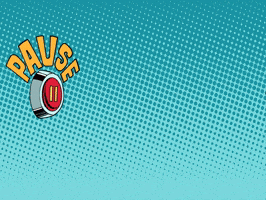In today’s fast-paced world, where productivity and success are often equated with constant activity, it’s easy to fall into the trap of pushing ourselves to the brink.
We’re conditioned to believe that hard work and persistence will inevitably lead to success, but what happens when that drive leads to exhaustion?
There's a simple yet profound piece of advice that can change how we approach our goals: “If you get tired, learn to rest, not quit.”

This quote, popularized by the anonymous street artist Banksy, is a powerful reminder that success isn’t about pushing ourselves until we have nothing left to give. It’s about recognizing when we need to step back, recharge, and then return to our tasks with renewed energy and focus.
But what happens when we ignore this advice? The answer often lies in burnout.

What Is Burnout?
Burnout is a state of chronic physical and emotional exhaustion, often accompanied by feelings of detachment and a sense of ineffectiveness.
It’s more than just being tired; it’s the result of prolonged stress and overwork without sufficient rest or recovery.
It is well known that chronic stress can have serious implications for both mental and physical health, impacting job performance, personal relationships, and overall well-being.
In the work environment, job burnout can manifest itself in symptoms like fatigue, reduced creativity, and growing cynicism toward work.
For example, consider a healthcare professional, such as a nurse or doctor, working long hours in a high-pressure hospital environment. The constant stress of providing quality care, combined with the emotional toll of dealing with sick or dying patients, can lead to a state of exhaustion where the individual feels detached from their work and starts questioning their effectiveness. This is a classic case of burnout, where the drive to care for others ultimately leads to a deep sense of fatigue and disillusionment.
Burnout research emphasizes the importance of understanding the stages of burnout and identifying preventative measures.
Consulting a mental health professional when dealing with job burnout symptoms is crucial for effective coping and differentiation from clinical depression.
A systematic review of burnout research highlights the effectiveness of various interventions and approaches in mitigating burnout symptoms among healthcare workers.
Burnout isn’t limited to high-stress professions. It can affect anyone, including those in seemingly less intense jobs. Take a software developer working in the tech industry, where long hours and tight deadlines are the norm. The constant demand to stay ahead in a rapidly changing field can become overwhelming, leading to burnout.
Burnout can also infiltrate personal life. Imagine a stay-at-home parent juggling household responsibilities, childcare, and possibly caring for aging parents. Without time for self-care or proper breaks, this person may experience burnout, feeling irritable, hopeless, and physically unwell. The parental burnout inventory is essential for measuring and understanding parental burnout, providing evidence-based approaches to support affected parents.

Signs of Burnout
In our quest for success, many of us fall victim to an epidemic of rumination and burnout.
Social media exacerbates this issue by constantly presenting us with the highlight reels of others’ lives, leading to harmful social comparisons. We begin to doubt our progress, fail to recognize our own achievements, and spiral into a cycle of self-criticism and fatigue.
Recognizing the warning signs of burnout is essential to prevent it from taking a toll on our well-being.
To break free from this cycle, it’s crucial to practice self-compassion and mindfulness. Acknowledge your progress, however small, and remind yourself that everyone’s journey is different.

By focusing on your own path and giving yourself the rest you need, you can implement strategies to overcome burnout and be better equipped to achieve your goals without burning out.
The Power of Rest
Preventing burnout starts with recognizing the vital importance of rest.
Far from being a sign of weakness or failure, rest is an essential element of long-term success. When we prioritize rest, we give our bodies and minds the chance to recover, which ultimately enhances our ability to perform effectively over time. This is especially crucial in managing work-related stress, which, if left unchecked, can lead to burnout.

In today’s fast-paced world, the overwhelming desire for immediate results often drives us to the brink.
We live in an era where quick progress is expected, and when results don’t materialize instantly, frustration can set in. This impatience can lead us to abandon projects and dreams too soon.

However, success isn’t built overnight. Instead of giving up at the first sign of fatigue or frustration, it’s important to take a step back, rest, and allow yourself the time needed to continue with a clear mind and renewed focus.
Our lives have never been busier. With full schedules, constant interruptions, and the relentless noise of digital communication, maintaining focus and energy is increasingly difficult.
This constant busyness often drives us to push through fatigue rather than acknowledging our need for rest, a pattern that can quickly lead to burnout.
Incorporating regular breaks into our daily routines can make a significant difference. Even short breaks every 90 minutes, combined with movement, a break from technology, and proper nourishment, can help combat the effects of fatigue.

Sleep is another crucial factor in preventing burnout. It’s during sleep that our bodies repair themselves, and our brains undergo essential detoxification processes. Sacrificing sleep in the name of productivity is a surefire way to accelerate burnout.
Prioritizing sleep ensures that we wake up refreshed and ready to tackle challenges effectively, maintaining the energy levels needed to manage stress.

Managing Time, Control & Work Life Balance
But what about those of us who don’t have complete control over their schedules?

Many people have demanding jobs or personal responsibilities that dictate their hours, leaving little room for rest. In these cases, it’s essential to identify what aspects of your life you can control.
Practical tips on how to avoid burnout include focusing on stress management and prioritizing self-care to help maintain balance and cope with overwhelming challenges.
Ask yourself: What can I carve out, and what can I control? Are constant interruptions preventing me from completing my work? Am I contributing to the problem by interrupting others or failing to set boundaries? These questions can help you identify areas where you can make changes, even if they seem small.

It’s not a quick fix, but making a conscious effort to change your behavior can influence those around you and create a more productive, balanced environment. Strategies on how to prevent burnout include reassessing priorities and addressing both basic and emotional needs to maintain balance and wellness.
Final Thoughts...
“If you get tired, learn to rest, not quit.” These words are more than just a motivational quote—they’re a blueprint for sustainable success.
Burnout is a serious issue that can arise when we ignore the need for rest, leading to physical, emotional, and mental exhaustion.
By recognizing the importance of rest, managing our time effectively, and taking regular breaks, we can maintain our momentum and achieve our goals without sacrificing our well-being.
Success is a marathon, not a sprint. Rest when you need to, and you’ll find the strength to keep going, no matter how long it takes.





